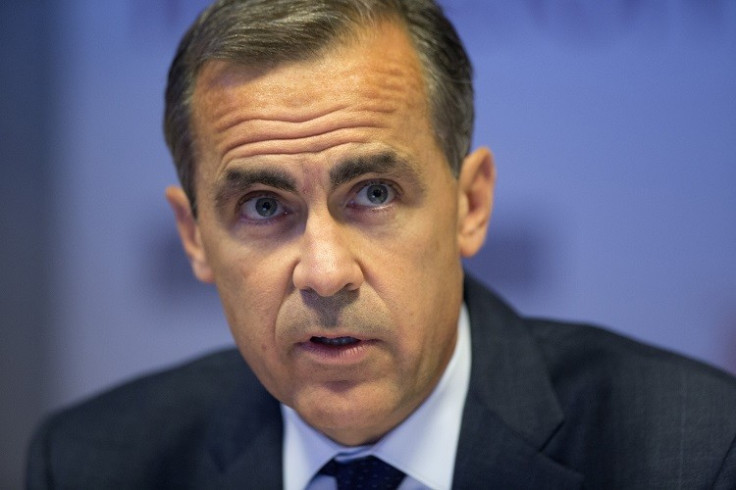BoE's Mark Carney: We Won't Let UK Become Another Japan by Hiking Rates Early

Bank of England Governor Mark Carney has said the UK's base interest rate may not be raised from its record-low for at least three years, as he seeks to reassure the markets that there will not be any sudden tightening of monetary policy in the near future.
In a Nottingham speech, Carney said it could take more than three years for unemployment to fall to 7%, the threshold set under his forward guidance on when the BoE will consider lifting interest rates, even if productivity catches back up with itself to 2008 levels by 2015.
"The prospect that interest rates might stay at their low level for longer will not be welcome for savers," Carney told a business lunch hosted by East Midlands business organisations.
"I have tremendous sympathy for them - after all they have done the right thing, set money aside, and now they are earning returns that are substantially below what they would have expected. But raising interest rates now is not the answer - instead what savers need is a stronger economy.
"That will mean higher asset prices, and will allow interest rates to return to normal levels in a sustainable way. A strong economy is in all of our interests, as it will deliver better job prospects for our friends, neighbours, children and grandchildren."
He added: "The last thing savers want is for the UK to follow Japan by raising interest rates before recovery is secured, only to find that we are condemned to decades more of low interest rates and lost opportunities."
Carney also sought to reinforce the idea that the 7% unemployment rate threshold is only a "staging post to assess the economy".
"Nobody should assume that it is a trigger for raising rates," he said.
There are three knockouts that would automatically void the BoE's forward guidance.
Firstly, that the MPC thinks it is more likely, than not, that inflation in the 18-24 months ahead will be at least 0.5% higher than the government's 2% target.
Secondly, that medium-term inflation expectations are no longer well anchored.
And thirdly, that the BoE's Financial Policy Committee judged the stance of monetary policy was a significant threat to the UK's financial stability.
Boost for Bank Lending
Carney also announced a significant boost for lending to the real economy by relaxing the tough capital buffer rules for banks.
UK banks are being ordered by the BoE to shore themselves up with a 7% capital ratio to protect themselves, as well as taxpayers who called be called on again for more bailouts, in the event of another financial catastrophe.
However, those banks who meet the 7% target by the end of 2013 will be required to hold fewer liquid assets, such as government bonds, as part of their capital buffer.
"The effect will be to lower total required holdings by £90bn, once all eight major banks and building societies meet the capital threshold," said Carney.
"That will help to underpin the supply of credit, since every pound currently held in liquid assets is a pound that could be lent to the real economy."
Critics of the capital ratio regime say it is sucking money away from lending to the real economy, in turn holding back the flow of credit to consumers and small firms.
"Some argue that the repair of banks' balance sheets holds back economic recovery because it causes banks to cut back their lending," said Carney.
"The reality is the opposite: where capital has been rebuilt and balance sheets repaired, banking systems and economies have prospered.
"Without an adequate capital base, banks will be wary of lending and, if they do, will find themselves needing to turn off the lending taps when the unexpected happens, as it inevitably does.
"Investors will lack the confidence to fund banks cheaply, raising the cost of credit to the real economy, and most importantly, you will lack the confidence that credit will be available if you need it."
© Copyright IBTimes 2024. All rights reserved.






